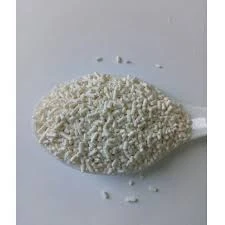
Exploring Applications and Benefits of Deuterated Solvents in Chemical Research
The Importance of Deuterated Solvents in Modern Chemistry
Deuterated solvents have become essential tools in the field of nuclear magnetic resonance (NMR) spectroscopy and other analytical techniques in modern chemistry. These solvents, in which some or all of the hydrogen atoms have been replaced with deuterium, a stable isotope of hydrogen, offer unique advantages for researchers seeking to obtain precise and reliable data from their experiments.
One of the main reasons for using deuterated solvents is their minimal interference with NMR signals. In NMR spectroscopy, the resonance frequency of hydrogen nuclei (protons) is monitored to provide structural and dynamic information about the molecules being studied. Ordinary solvents, which contain hydrogen atoms, contribute significant background signals that can obscure or complicate the spectra of the target compounds. Deuterated solvents, on the other hand, produce weak or negligible signals in the relevant frequency range, allowing chemists to focus on the signals of interest. This facilitates clearer and more interpretable spectral data.
Common deuterated solvents include deuterated chloroform (CDCl3), deuterated dimethyl sulfoxide (DMSO-d6), and deuterated water (D2O). Each of these solvents has its specific applications and advantages. For instance, CDCl3 is widely used for organic compounds, as it is relatively inert and can dissolve a vast array of organic molecules. DMSO-d6 is often preferred for polar compounds due to its ability to solubilize a wide variety of substances, including salts and large biomolecules.
deuterated solvents

In addition to their role in NMR analysis, deuterated solvents are also useful in other techniques such as mass spectrometry and infrared spectroscopy
. In mass spectrometry, the incorporation of deuterium can help in understanding the fragmentation patterns and mechanisms of reactions, aiding in the elucidation of complex structures. Meanwhile, in infrared spectroscopy, deuterated solvents can provide insights into the vibrational modes of molecules, allowing researchers to distinguish between similar compounds based on their spectral signatures.Moreover, the use of deuterated solvents contributes to isotopic labeling, which is an important strategy in metabolic studies and chemical reaction tracing. By selectively incorporating deuterium into specific positions of a molecule, researchers can monitor the interactions, dynamics, and pathways of synthetic reactions in real-time. This has significant implications in fields such as drug development, where understanding the behavior of compounds in biological systems is crucial.
The high cost and limited availability of deuterated solvents can sometimes pose challenges for researchers. However, several manufacturers have developed cost-effective synthesis techniques and bulk production methods to address this issue. Additionally, the growing demand for advanced analytical techniques in various scientific disciplines is continuously driving improvements in the availability and variety of deuterated solvents.
In conclusion, deuterated solvents play a crucial role in modern chemistry, particularly in enhancing the quality of NMR spectroscopy and other analytical methodologies. Their unique properties allow scientists to explore the structural intricacies and dynamics of various compounds with minimal interference, thus paving the way for advancements in chemical research and applications. As technology progresses, the refinement and accessibility of deuterated solvents will undoubtedly continue to support the scientific community in its quest for knowledge and innovation.
-
Understanding Synthetic Rubber OptionsNewsApr.27,2025
-
Trichloroisocyanuric Acid: Essential for Clean and Safe WaterNewsApr.27,2025
-
Sodium Dichloroisocyanurate: Key to Safe Water TreatmentNewsApr.27,2025
-
Sodium Acid Pyrophosphate: Essential in Modern Food ProcessingNewsApr.27,2025
-
Essential Water Treatment ChemicalsNewsApr.27,2025
-
Denatured Alcohol and Its Industrial UsesNewsApr.27,2025
-
The Versatile Uses of Sodium BicarbonateNewsApr.24,2025
Hebei Tenger Chemical Technology Co., Ltd. focuses on the chemical industry and is committed to the export service of chemical raw materials.
-

view more DiethanolisopropanolamineIn the ever-growing field of chemical solutions, diethanolisopropanolamine (DEIPA) stands out as a versatile and important compound. Due to its unique chemical structure and properties, DEIPA is of interest to various industries including construction, personal care, and agriculture. -

view more TriisopropanolamineTriisopropanolamine (TIPA) alkanol amine substance, is a kind of alcohol amine compound with amino and alcohol hydroxyl, and because of its molecules contains both amino and hydroxyl. -

view more Tetramethyl Thiuram DisulfideTetramethyl thiuram disulfide, also known as TMTD, is a white to light-yellow powder with a distinct sulfur-like odor. It is soluble in organic solvents such as benzene, acetone, and ethyl acetate, making it highly versatile for use in different formulations. TMTD is known for its excellent vulcanization acceleration properties, which makes it a key ingredient in the production of rubber products. Additionally, it acts as an effective fungicide and bactericide, making it valuable in agricultural applications. Its high purity and stability ensure consistent performance, making it a preferred choice for manufacturers across various industries.











